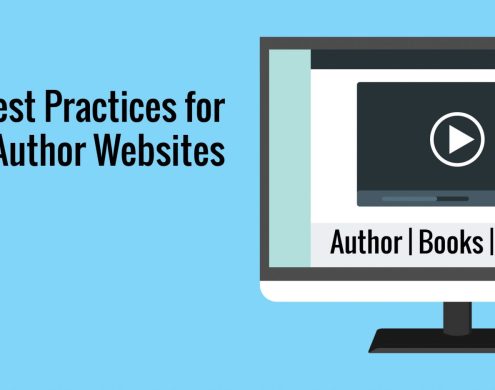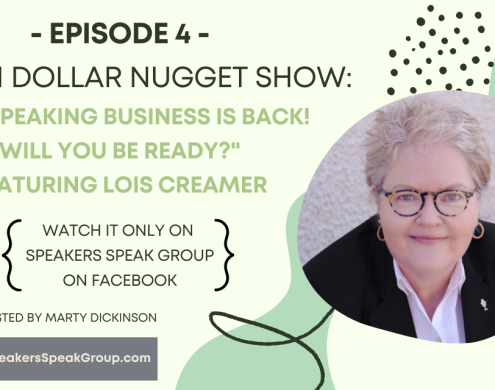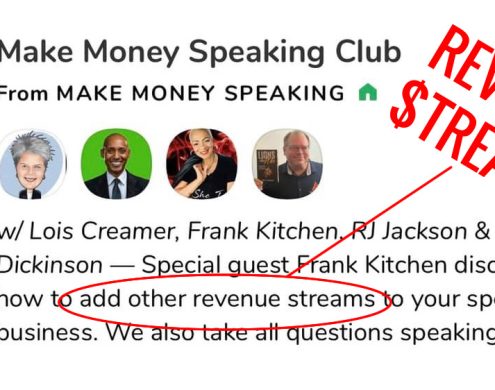
Setting Your Speaking Fees and Negotiating Your Value with Decision Makers
Setting your speaking fees and creating a rate sheet with different speaker pricing options is one of those activities that drives most new speakers crazy. They always wonder if they’re quoting too high and give in too soon when negotiating with event organizers and other people who hire professional speakers.
Even more challenging is the fact that National Speakers Association chapters and conferences are not allowed to talk about speaking fees from the stage. Doing so would be in violation of collusion and antitrust laws. The government goes after associations that talk about “recommended pricing or fixed pricing.”
Fortunately, we at Here Next Year and the Make Money Speaking club in Clubhouse are not formally connected to NSA. We can talk about speaker pricing all we want to! And, as you’ll notice from this very long page, we talk about speaker rates almost every week in our Monday Clubhouse meetings.
The two most frequent questions we hear are:
1) What should I charge to get started as a professional speaker? And…
2) How should my pricing be different for hybrid/virtual events?
These (and others) are questions most speakers are hesitant to ask, but we will post trends and tips for those topics here ongoing. So, stay tuned.

As Discussed in October 26, 2021, Make Money Speaking Clubhouse Session with the Theme: Negotiating with Decision Makers
- Businesses are more dynamic than associations or professional groups. So, you will have more opportunities to negotiate with corporate speaking clients.
- The most important part of negotiating is actually building a relationship with the person you’re negotiating with.
- Assemble a fee schedule so you can quickly and easily provide it when negotiating. [Marty Note: I suggest converting your one-sheet and fee schedule into PDF documents and uploading them to your website. Create an easy URL to remember for each such as https://myspeakersite.com/pdfs/speaking and https://myspeakersite.com/pdfs/rates.]
- Have a “sleep in my own bed” fee since you will have less travel expenses when speaking locally.
- Have a line in the sand that you won’t go below in reducing your speaking rate.
- If the decision maker wants to go lower than your line in the sand, say, “I’d be happy to help you find someone earlier in their career that might be a better fit,” which of course suggests the person is going to be less experienced than you are.
- When a decision maker asks for a rate reduction, say, “If I could do that, what could you offer that would be of value to me that would offset the difference?”
- Possibilities would be for the decision maker to include in the speaking contract: video recording of your program, video testimonial, introduction by email to a decision maker for a speaking opportunity at another organization, have you back to speak within the next year at full fee, they’ll buy your products or books for the audience.
- The Million-Dollar Nugget of the night was this where Lois said: “When dealing with decision makers, speak in outcomes not your process.”
- Listen for opportunities with the decision maker where a problem is cited. Answer with an outcome-based question, such as: “What would it look like if your employees could increase sales by 12% next month by changing one thing?”
- Another golden nugget of the night was where Lois said: “You’re either a fit or you’re not.”
As Discussed in July 26, 2021, Make Money Speaking Clubhouse Session with the Theme: Developing Your Speaking Rates
- A lot of groups don’t pay speakers. When you get to the money part of booking a fee-waived event, you must ask clients if they have or have not paid for another speaker within the last 2 years if they want you to consider the event. If the client wants to waive your fee or ask for heavily discounted, you say, I would love to partner, but before 3 weeks out from your event, I have permission to cancel if I have a paid opportunity.
- Have a “two tier fee schedule”: up to 90 mins, up to full day (6hrs), or up to half day (3hrs) and assign an amount to each. Let’s say your keynote fee is $5000, but the client only has a budget of $3000. You say, “If I could do that amount, what else of value may you be able to offer me?” (testimonials, networking, promotion, master footage, commitment yearly at full fee, etc)
- If you are priced too low, you will be getting more requests than you can handle. If you are priced too high, you will be hearing crickets. Your schedule will tell you how accurate your fee is. Never go down in fee, only go up.
- Should I have a different fee schedule for virtual and in-person events?
- Your fee is your fee. Your value shouldn’t change no matter what format you are doing. However, you could have variations like discounts, local fees, or percent off.

As Discussed in July 19, 2021 Make Money Speaking Clubhouse Session
- Developing a “Fee Schedule” is very helpful to have when booking engagements.
- You reserve the right to ask to get back to them with your fee. Don’t ever feel rushed or coerced into giving a fee you aren’t confident in .
- Any time you make a sale, walk joyfully out of that room! Even if it isn’t exactly as much money as you wanted, any opportunity is a great opportunity.
- Any time any time someone says “you used to be cheaper”, you say you are “happy and proud to be adjusting your fee to reflect the market and how busy I am.”
- Instead of charging hourly, put together different types of packages for yourself that include different things, reflecting the price of how you value yourself.
- You have to set a fee that pleases you, not so much the client.
- Say “Thanks for asking, but it depends” and then that allows you to ask the client questions about what they want to offer or what they are expecting from you, which can help you gauge your price.
As Discussed in June 14 Make Money Speaking Clubhouse Session
- Lois mentioned an article quote that stood out to her: “The challenge as we go to a hybrid meeting arrangement is to make sure the virtual audience doesn’t feel like second class citizens.”
- Socio is a program that works well for hybrid events and is being used for National Speakers Association’s “Influence” national convention.
- Speakers need to not offer a discount, but instead ask, “What else can I throw in here in order to have you pay my complete fee?” Add value upfront instead of discounting. Say: “I would love to do this event, what if I were able to hold a master class for the next 3 weeks…” or “How many people are going to be there? I’ll throw in that many books” etc.
- Also be ready to ask “If I was able to discount, what else of value would you be able to offer me?” Then ask, “Would you be able to bring me back next year at full fee?”
- Look at other speakers fees and what they do in order to accurately gage your own. Espeakers.com has a membership fee, but you can get a $10 trial and do some very specific research as to which speakers, with what amount of experience, are charging how much in your specific area of focus.
- Realize that we are coming out of the pandemic and into a market that is going to be thriving and you need to be ready to position yourself to be a great choice for those hiring.
- Your fee has to be what it is worth to YOU. If the fee is too low, you will resent the job and probably put less effort into the speaking opportunity than you would otherwise. Make sure you are happy and the job is worth it for you.
- Don’t underestimate your value in the marketplace and be ready to adjust fees as you gain popularity and experience.
- Make sure you factor into your pricing the prep-time that it takes for you to put together a presentation and/or research.
- The traditional method of receiving payment as a speaker is half up-front to reserve the date and then the other have before you take the stage. But, Lois suggests requiring prepaid 100%.
- Lois’ Cancellation Clause to Add to Your Speaking Contract: “In the unlikely event we need to reschedule our work, all of your payment will be applied to a new mutually agreed to date that will take place within one year of this date.”
- Never say the word “cancel” always use “reschedule” and include that the speaking payment is good for a certain term, usually one year.
- If your fee has gone up within the time of your rescheduled event, client will be paying new fee.
- People purchase outcomes. Demonstrate your audience’s outcome with printed and video testimonials.
- How would event planners and others who hire speakers know your value if you haven’t spoken to an audience before?
- The relationship is the most important thing in business. Do whatever you have to do to keep a good relationship. Keep in mind that people talk in this business and maintaining a good relationship will be more important than money in the long term.
- Set up an escrow account and do not do spend what you’ve been paid until the service (your speaking) has been delivered.
- You can start demonstrating your value before you take the stage by including one or two planning meetings in your speaker agreement.
- If they ask you to do “x,y,z” before you get on stage, make sure to factor that into your fee later.
- Nancy Giere, a training course development expert, shared some variables for pricing TRAINING COURSES:
- People will do a very low priced offer, starting at $47 and $97. Main element for pricing is how much access your clients will have to you. When you add packages, add video, add exercises, or have someone working with you, then you build your price based on that.
- (Find out the best techniques given by Nancy on how to develop your speaker training courses by following the link!)
- Pricing in Quadrants: Starting out free is great to get testimonials, but then the typical speaker raises their rates to at least $1,500 per engagement. Then, there is a quick jump to $5,000 or more (especially if you write a book).
- Do you have expertise? Do you have the ability to communicate that expertise? What markets have historically paid for that expertise? Start out at a pricing level that reflects your expertise.
- Accumulating testimonials are one of the most important parts of building your speaking career.
- People who hire speakers look for so much social proof whether it’s in writing or visual proof that your audience will respond positively to you! Give the client confidence that you do what you do well.
- Base everything that you do on your target market, how important your information is to that group and quantify your value to them.
Questions from the Audience
Question: Should a fee that a speaker charges be different between virtual or on site?”
Answer: Your fee is your fee. People are looking for a discount when you do virtual, but virtual is a bigger challenge. Have your fee be a range depending upon what you need. Then let the speaker hiring agent say what their budget is. You will find out then if it is worth it for you or not. Do not let anyone decide the value of your intellectual property in the marketplace. Be sure to have a drop-dead price that you will not go below.
Question: What if their budget is lower than your fee?
Answer: Stick to your fee! Even if you feel you could have gotten more, you have to feel confident in your fee. If you don’t, it might be too low.
Question: Is it wrong to change your fee abruptly or should you gradually change it?
Answer: A big part of it is your experience. Ask yourself if you have the experience, communication skills, and ability to grow your business at a fast rate. Make an incremental raise, you don’t want to raise it too fast if you can’t offer enough for that price.
Question: Is there a need to create multiple fee schedules, one for non-profit and one for corporate?
Answer: Nonprofits CAN pay for a service. Have your specific fee, and for a non-profit maybe just offer a percentage discount for them if you want.
Question: Are legal teams going to add more to their contracts for virtual events?
Answer: If you get a client contract that you don’t agree with or is too complicated, you have the right to cross out anything you don’t agree with. Speak to client and attorney before completely agreeing.





